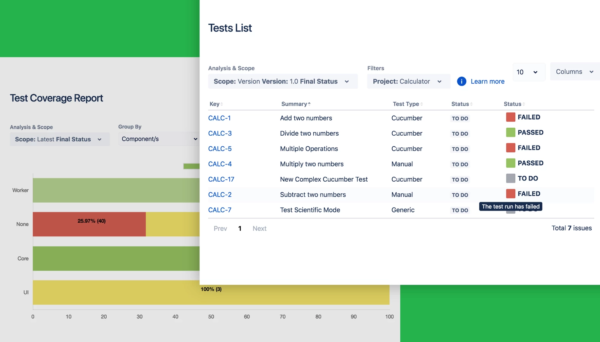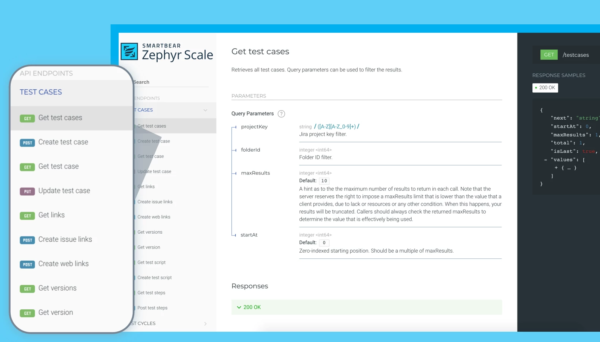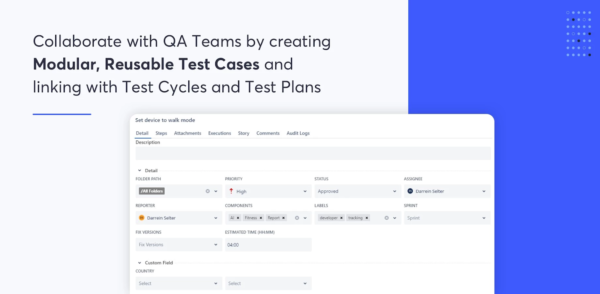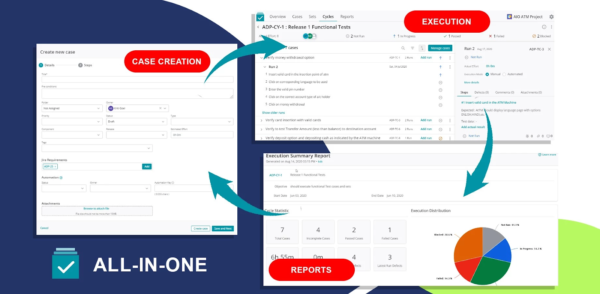What is test management?
Test management is a method of planning, organizing, controlling, and ensuring traceability in the software testing process in order to deliver high-quality software applications.
As more developers adopt agile practices, methods for testing products are changing, too. Instead of running tests after the implementation phase like they used to, developers must begin testing at an early stage in development. This ensures that issues are found and resolved early, meaning they’re less expensive to fix.
Because agile methodology dictates a constant and iterative approach, test management must change to better align with the workflow.
Test management solutions are critical for agile developers to stay on top of the constant, iterative testing process. They cover the entire process, from conception, planning, and estimation; to monitoring and control; through to completion.
Test management transforms the managerial role in an agile environment
Using test management in agile elevates the managerial role from a tactical position to a more strategic one.
In traditional software development processes, managers are in charge of tasks like reviewing and approving estimates, holding meetings to discuss progress, and distributing tasks.
But in agile, teams need to be self-directed and take ownership of tasks to be effective. Empowering a team to create their own estimates and distribute specific tasks makes the team more accountable. Creating a sense of ownership among individual team members also frees up managers to allow them to make an impact on the organization in other ways.
Some of these new opportunities include growing the skills of their staff and making sure that all agile teams have effective testing professionals. This could mean creating a center of excellence to allow individuals from different teams to share resources and best practices. Managers can also serve as testing advocates to senior management who might not have technical backgrounds to ensure that they understand the importance of testing.
Test management improves testing for the agile environment
Test management offers lots of benefits to organizations using agile development – namely, making it easier for those orgs to incorporate testing into their processes. This happens in three key ways:
- It helps minimize data duplication. When siloed teams run tests, it can result in data duplication. But test management tools give these teams an end-to-end view of all the tests performed and any defects found, which reduces data duplication because all teams can share the same view.
- It helps improve coverage when iterating tests through manual testing. Conducting manual tests through different data sets is typically difficult and time-consuming because of the wide range of tests to complete. And because there are so many, it can be hard for everyone to keep track of what’s been done and what hasn’t. Test management solutions make it easier to track your backlog.
- It helps you prioritize tests. There are a lot of combinations to consider in an agile development process, so you’ll want to focus on the risky areas. Test management solutions make it simpler to identify risky areas by allowing you to grade risk factors in custom fields, e.g., probability and impact, and prioritize them in the tool.
Test management makes agile teams more effective
Test management helps your teams operate more effectively by facilitating collaboration, which is critical to the success of any agile team. This speaks to one of the core values of the Agile Manifesto: “Individuals and interactions over processes and tools.”
Test management also helps development and QA teams stay aligned by giving full visibility to different testing assets. Everyone has easy access to the information they need, when they need it. Information isn’t siloed.
Test management helps you make better decisions
The test management process helps organizations make better and faster strategic decisions, particularly around regulatory compliance, by enabling them to document testing information. Having this data readily available makes compliance reporting faster and easier. And because this type of data provides the basis for most decisions, you can’t make good ones without it.
Test management tools can also help you decide when to ship your product by tracking its development progress – when you understand where you are in the process, you can better determine when your product will be ready for users.
The right tools for your agile team
The right solution for your team depends on your needs, products, and budget. If your software development process is managed in Jira, test management apps are available to simplify the process throughout your organization. Below, we’ve included some helpful tools that are available.

Xray – This app manages all your tests as Jira issues. You can also use test plans to track progress.

Zephyr Scale – This is a scalable test management solution for Jira that comes with advanced planning, reusability, and reporting features.

QMetry – This is a lower-cost option that supports agile test management and requirements management in Jira.

AIO Tests – This can serve as the one-stop shop for all your testing needs.
For more test management apps, browse the Atlassian Marketplace.

